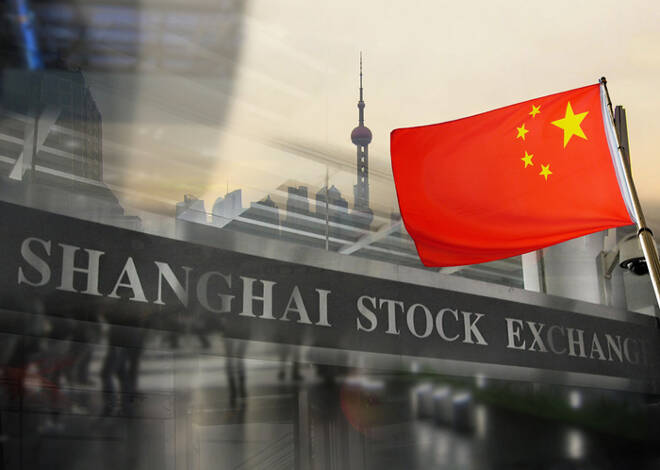Advertisement
Advertisement
Asia-Pacific Shares Follow Wall Street Lower; Nikkei Hits Six-Month Low on COVID Concerns
By:
Australian shares ended lower on Tuesday, as a steep drop in mining and energy stocks outweighed gains in tech and healthcare firms.
The major Asia-Pacific stock indexes finished sharply lower on Tuesday, following Wall Street’s lead after U.S. stock markets plunged the previous session. Fears over a COVID resurgence weighed on investor sentiment. Investors are concerned about the potential impact of the surge in infections on the global economic recovery.
Japan’s Nikkei ended at a 6-month low amid rising COVID-19 cases. South Korean stocks slid for a third day as virus woes sapped risk appetite. China shares edged lower as a key lending rate held steady and Australia shares extended losses as miners and energy stocks weighed on sentiment.
Cash Market Performance
In the cash market on Tuesday, Japan’s Nikkei 225 Index settled to 27388.16, down 264.58 or -0.96%. Hong Kong’s Hang Seng Index finished at 27259.25, down 230.53 or -0.84% and South Korea’s KOSPI Index closed at 3232.70, down 11.34 or -0.35%.
In China, the benchmark Shanghai Index settled at 3536.79, down 2.33 or -0.07% and in Australia, the S&P/ASX 200 finished at 7252.20, down 33.80 or -0.46%.
Japan’s Nikkei Ends at 6-Month Low Amid Rising COVID-19 Cases
Japan’s Nikkei share average fell to a six-month low on Tuesday, tracking a broad sell-off on Wall Street as concerns grew that rising coronavirus cases globally could derail a nascent economic recovery.
As COVID-19 cases rise in Tokyo, now under its fourth state of emergency, public concern has grown that hosting the Tokyo Olympics with tens of thousands of overseas visitors could accelerate infection rates in Japan’s capital and introduce variants that are more infectious or deadlier.
South Korean Stocks Slide for Third Day as Virus Woes Sap Risk Appetite
South Korean shares ended lower for a third straight session on Tuesday, as technology heavyweights tracked overnight losses on Wall Street over worries about surging coronavirus cases globally.
Chip giant Samsung Electronics fell as much as 0.76%, while peer SK Hynix slid 0.42%. Internet giant Naver and battery maker LG Chem also dropped 0.90% and 0.61%, respectively.
China Shares Edge Down as Key Lending Rate Kept Steady
China shares ended down on Tuesday after Beijing kept a benchmark lending rate unchanged despite growing expectations for a cut, while investor concerns over developer Evergrande affected the property sector.
Policymakers kept the one-year loan prime rate (LPR) at 3.85%. The five-year LPR remained at 4.65%. The rate was unchanged for the 15th straight month, despite growing expectations for a cut after a surprise lowering of bank reserve requirements.
The steady LPR, coming after the central bank kept the rate on medium-term lending facility (MLF) loans unchanged last week, suggests policymakers are looking to avoid full-scale easing.
Australia Shares Extend Losses as Miners and Energy Stocks Weigh
Australian shares pared back sharp losses made in the morning trade but ended lower on Tuesday, as a steep drop in mining and energy stocks outweighed gains in tech and healthcare firms.
On Tuesday, South Australia also entered lockdown, the third Australian state to do so as the country battled the worst COVID-19 outbreak of this year.
Aussie miners were among the biggest drags on the benchmark, slumping nearly 1.9% even as iron ore prices inched up. Energy stocks slumped as oil prices dipped 7% overnight, while Australia healthcare stocks reversed losses to end 0.9% higher.
For a look at all of today’s economic events, check out our economic calendar.
About the Author
James Hyerczykauthor
James Hyerczyk is a U.S. based seasoned technical analyst and educator with over 40 years of experience in market analysis and trading, specializing in chart patterns and price movement. He is the author of two books on technical analysis and has a background in both futures and stock markets.
Advertisement
